Index relies entirely on the support of donors and readers to do its work.
Help us keep amplifying censored voices today.
[vc_row][vc_column][vc_column_text]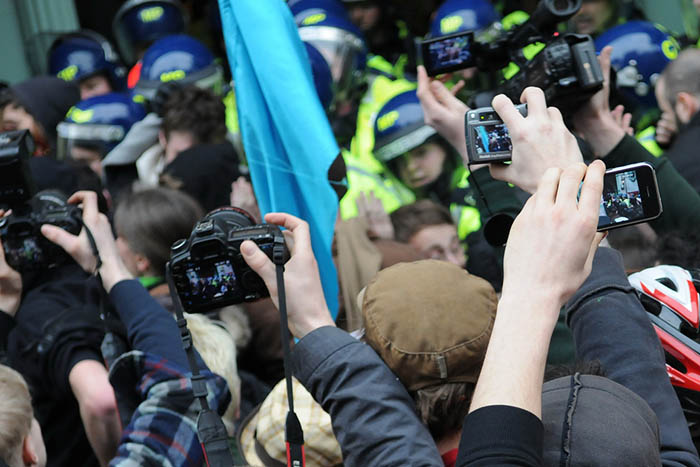
To highlight the most pressing concerns for press freedom in Europe in 2017, members Index’s outgoing youth board review the year gone by with some of our Mapping Media Freedom correspondents.
Youth board member Sophia Smith Galer, from the UK, spoke to Ilcho Cvetanoski, Mapping Media Freedom correspondent for Croatia, Montenegro, Bosnia and Macedonia.
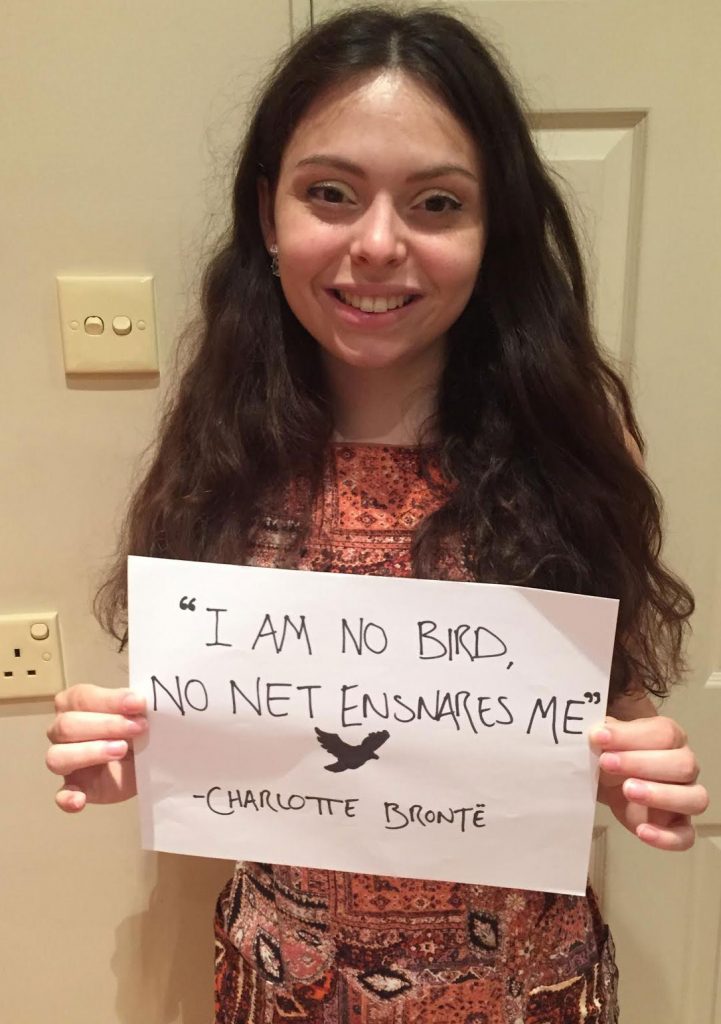 According to Cvetanoski, a lot has improved in the region over the last 15 years. The era during which journalists were targeted and killed is long passed, but the media is still dogged by censorship and political divides. In fact, journalists are regularly threatened and vilified by political elites, often denounced as foreign mercenaries, spies and traitors. Cvetanoski reports that this has led to “physical threats, the atmosphere of impunity, media ownership and also verbal attacks amongst the journalists themselves”. He notes that techniques pressuring journalists have changed from “blatant physical assaults to more subtle ones”.
According to Cvetanoski, a lot has improved in the region over the last 15 years. The era during which journalists were targeted and killed is long passed, but the media is still dogged by censorship and political divides. In fact, journalists are regularly threatened and vilified by political elites, often denounced as foreign mercenaries, spies and traitors. Cvetanoski reports that this has led to “physical threats, the atmosphere of impunity, media ownership and also verbal attacks amongst the journalists themselves”. He notes that techniques pressuring journalists have changed from “blatant physical assaults to more subtle ones”.
The breaking up of the former Yugoslavia has undoubtedly been a historical burden on Bosnia and Herzegovina and Croatia. Cvetanoski describes this legacy as having left “deep scars in every aspect of the people’s lives, including the lives and the work of journalists”. Media workers are still remembered as having once been tools of the state. Nowadays, the opposite is happening; they’re being criticised by political elites as enemies of the state simply for scrutinising politicians’ behaviour.
It’s unsurprising that this has left many journalists in the region politicised, undermining professionalism and trust in the media. Conservative politicians court sympathisers in the media so that they can manipulate the angle and content of stories that are run. The fact that journalist salaries are low and that the economic situation is poor overall further imperils journalistic integrity in the face of bribes.
If the situation remains as it is – with limited and highly controlled sources for financing the media, a poor political culture and low media literacy among citizens – then Cvetanoski holds little hope for the future of press freedom in the region. News consumers aren’t equipped with the literacy levels to distinguish between professional versus sensational journalism, nor are the sources of media funding transparent or appropriate. “In this deadlock democracy, the first victims are the citizens who lack quality information to make decisions.”
Mapping Media Freedom is helping to change this. Making journalists feel less alone and offering a space for them to report threats to press freedom ensures that the hope for a free press throughout Europe is kept alive.
The youth board’s Constantin Eckner, from Germany, spoke with Zoltán Sipos, the MMF correspondent for Hungary, Romania and Bulgaria.
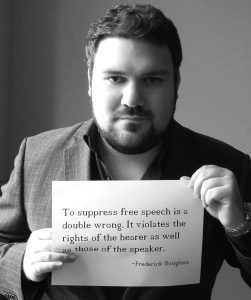 As MMF illustrates, journalists in all three countries have to deal with constant pressure from authorities and various degrees of censorship. In 2016, 42 incidents were reported in Hungary, 21 in Romania and 7 in Bulgaria.
As MMF illustrates, journalists in all three countries have to deal with constant pressure from authorities and various degrees of censorship. In 2016, 42 incidents were reported in Hungary, 21 in Romania and 7 in Bulgaria.
Index on Censorship’s regional correspondent Zoltán Sipos, who is also the founder and editor of Romania’s investigative outlet Átlátszó Erdély, points out that the Hungarian government and its allies within the country follow a sophisticated plan to neutralise critical media outlets. Several newspapers that struggled financially have been purchased by rich business people or media moguls in recent history. “Just like in regards to any other part of society, prime minister Viktor Orbán seeks for a centralisation of the media industry,” Sipos says.
Yet, instead of simply controlling the media, Orbán and the reigning party Fidesz intend to use established outlets and broadcasters to construct narratives in favour of their agendas. Only a handful of independent outlets remain in Hungary.
In November 2016, Class FM, Hungary’s most popular commercial radio channel, was taken off the air. The Media Council of Hungaryʼs National Media refused to renew its licence as Class FM was owned by Hungarian oligarch Lajos Simicska, whose outlets became very critical towards the government after a quarrel between him and Orbán.
The authorities in Romania and Bulgaria might not follow a well-wrought plan, but the situation for critical journalists is as severe. “The main problem is that most outlets can’t generate enough revenue from the market,” Sipos explains. “These outlets found themselves under constant pressure, as powerful business people are willing to purchase them and use them to promote their own political agendas.” Ultimately, this issue leads to the demise of independent reporting and weakens voices critical of the ruling parties and influential political players.
Sipos concludes that “these three countries have little to no tradition of independent journalism.” Although death threats towards, or even violence against journalists do not exist, the working conditions for critical reporters are difficult.
He recommends the investigative outlets Bivol.bg from Bulgaria, atlatszo.hu and Direkt36.hu from Hungary as well as RISE Project and Casa Jurnalistului from Romania as bastions of independent journalism. A few mainstream outlets that conduct critical reporting are 444.hu, index.hu, HotNews.ro and Digi24.
Layli Foroudi, a youth board member from the UK, interviewed Mitra Nazar, MMF correspondent for Serbia, Kosovo, Slovenia and the Netherlands.
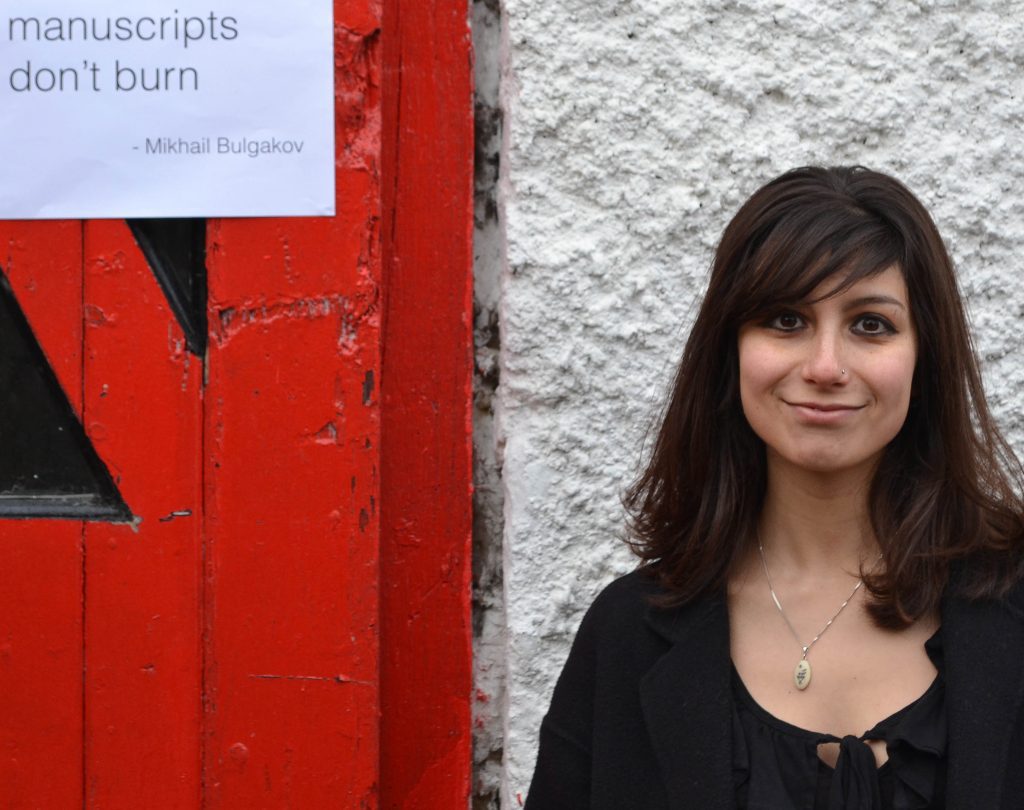 A Dutch national based in Belgrade, Serbia and the Netherlands are Nazar’s natural beats, and she also monitors media freedom in the nearby Balkan states of Slovenia and Kosovo.
A Dutch national based in Belgrade, Serbia and the Netherlands are Nazar’s natural beats, and she also monitors media freedom in the nearby Balkan states of Slovenia and Kosovo.
This year, Serbia has been the most intense of the four countries to cover. Serbian journalists have been subject to physical attacks and the government has maintained a smear campaign against independent media outlets in the country.
“This is a very organised campaign,” explains Nazar, “they’re being called foreign spies and foreign mercenaries.”
The “foreign spy” accusation has a real effect on the personal safety of journalists, whose pictures are often published alongside such accusations in the pro-government media. Nazar, who wrote a feature on the subject, says that this can cause such journalists to be branded as unpatriotic and anti-Serbian: “When the government accuses journalists of being “foreign spies”, it gives the impression that these independent journalists are against Serbia as a country.”
The ruling party of Serbia even went so far as to organise a touring exhibition called Uncensored Lies, where the work of independent media was parodied in an attempt to prove that the government does not censor, however, the exhibition also served to discredit these publications by calling the content “lies”.
“Can you imagine the ruling party organises an exhibition discrediting independent media,” says Nazar, shocked, “this is not indirect censorship, it is directly from the government.”
The media landscape in the Netherlands does not experience direct state-sponsored censorship, but there are other challenges. The Netherlands ranks 2nd in the 2016 RSF World Press Freedom Index, but Nazar has still reported a total of 49 incidents since the Mapping Media Freedom project started, from police aggression against journalists, to assaults on reporters during demonstrations, to broadcasters being denied access to public meetings.
For 2017, she is interested in looking into how the Dutch media deals with the rise of the far right and a growing anti-immigrant sentiment, especially in the upcoming elections which will see controversial far-right candidate Geert Wilders stand for office.
Last year, a Dutch tabloid De Telegraaf published an article about the arrival of refugees to the Netherlands with a sensational headline that generated a lot of debate in the Dutch media, which Nazar says is becoming increasingly politicised and polarised.
For Nazar, there is a line to be drawn with what legacy media outlets should and should not publish. “That line is representing and following the facts,” she says, “if you publish a headline that says there is a “migrant plague”, that is beyond facts – it is a political agenda.”
The youth board’s Ian Morse, from the USA, interviewed Vitalii Atanasov, the MMF correspondent for Ukraine.
In just the past two months in Ukraine, journalists have been assaulted, TV stations have been banned and governments on both sides of the country’s conflict with Russia have sought to limit public information and attack those who publicise.
Vitalii Atanasov is the correspondent who reported these incidents to the Mapping Media Freedom project. Drawing on sources from individual journalists to large NGOs, Atanasov monitors violations of media plurality and freedom in Ukraine for the project. To verify a story, he sometimes contacts media professionals directly, or crowdsources through social media, as he finds that all journalists publicise cases of violation of their rights, attacks, and incidents of violence.
“Some cases are complicated, and the information about them is very contradictory,” Atanasov tells Index. “So I’m trying to trace the background of the conflict that led to the violation of freedom of expression and media.”
Many of the violations that occur in Ukraine are either individual attacks on media workers by separatists in the east or Ukrainian officials attempting to control the media through regulation and licensing.
Of about a dozen and a half reports since he began working with MMF, Atanasov says many reports stick out, such as the “blatant” attempts of authorities to influence the work of major TV channels such as Inter and 1+1 channels. Most recently, Ukraine banned the independent Russian station Dozhd from broadcasting in Ukraine. While TV has recently been the target, problems with media freedom have come from almost everywhere.
“The sources of these threats can be very different,” Atanasov says, “for example, representatives of the authorities, the police, intelligence agencies, politicians, private businesses, third parties, criminals, and even ordinary citizens.”
Atanasov and MMF build off the work of other groups working in Ukraine, such as the Institute of Mass information, Human Rights Information Center, Detector Media, and Telekritika.ua.
Click on the bubbles to view reports or double-click to zoom in on specific regions. The full site can be accessed at https://mappingmediafreedom.org/
[/vc_column_text][/vc_column][/vc_row][vc_row][vc_column][vc_basic_grid post_type=”post” max_items=”4″ element_width=”6″ grid_id=”vc_gid:1486659943480-96bea7cd-9879-6″ taxonomies=”6514, 6564″][/vc_column][/vc_row]
[vc_row][vc_column][vc_column_text]
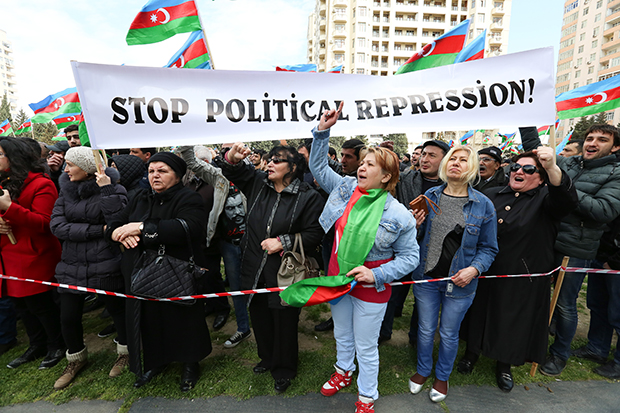
Photo: Aziz Karimov
For Azerbaijan’s president Ilham Aliyev and many other authoritarian leaders across the world, independent journalism and what it represents is bad news. The more irritating leaders find journalists’ work, the harsher consequences are for those reporting. This has been one of the most worrying trends across the world in recent years.
In 2016, there were 38 threats to press freedom reported to the Index on Censorship project Mapping Media Freedom. Journalists critical of the government were tortured and arrested. Internet sites were repeatedly blocked. TV outlets were knocked off the air through revocation of broadcast licences. Newspapers were starved to near bankruptcy and prevented from printing. Online criticism of the country’s hereditary president has been outlawed. Even family members of journalists have been targeted.
“In the last year alone, authorities have either detained, arrested, questioned six journalists and one blogger. Some parliament members have even hinted at introducing legislation that would monitor social media. The relentless pressure on media professionals and citizen journalists in Azerbaijan is aimed at shutting down any criticism of the Aliyev regime. The continued crackdown on freedom of speech is a clear violation of human rights,” Hannah Machlin, Mapping Media Freedom project officer, said.
The dismal state of free expression in Azerbaijan catalogued by Mapping Media Freedom is indirectly validated by Reporters Without Borders’ 2016 Press Freedom Index. That organisation found a disturbing decline in respect for media freedom around the world.
“It is unfortunately clear that many of the world’s leaders are developing a form of paranoia about legitimate journalists,” secretary general of RSF Christophe Deloire said.
Azerbaijan ranks 163rd on the press freedom index. The country’s ruling powers have long banned independent journalism and anyone who remained defiant was branded an agent, a traitor, a hooligan, a drug addict, anything but a journalist. While Mapping Media Freedom began closely monitoring the country in the second quarter of 2016, the clampdown on journalists long precedes this.
In 2014, authorities shut down the office of Azerbaijan Service for Radio Free Europe Radio Liberty. Around the same time, the dissident media outlet Meydan TV, shut down its office fearing a similar action. Its reporters on the ground have been detained, questioned and placed on travel ban lists ever since. Independent newspapers such as Zerkalo and Azadliq have been stifled with numerous libel charges. Both newspapers ceased printing issues with Azadliq available to its readers online only. One, columnist and TV anchor Seymur Hezi, remains in jail following a charge of “aggravated hooliganism” saw him sent to prison for over five years.
Azerbaijan’s media in exile
As the space for a free media shrank over the past few years, journalists fled the country. Some have chosen neighbouring Georgia as their base while others continue their work from Berlin and elsewhere.
Since 2015, a group of exiled Azerbaijani civil society activists who have been based in Georgia have designed a project to create opportunities for Azerbaijani journalists based in Georgia’s capital, Tbilisi, to work with local media outlets. Under the guidance of the Human Rights House Tbilisi, this initiative has involved at least a dozen journalists from Azerbaijan. The group has reported on the human rights and the day-to-day of living in Georgia.
Gulnur Kazimova left Azerbaijan out of fear of persecution and is currently based in Tbilisi where she lives with her family. She was among the participants of the HRH initiative. During the programme she reported on women’s issues that Azerbaijani community faced in Georgia. One such story was about a 19-year-old woman who was constantly beaten and threatened by her husband who kidnapped her at the age of 13 and eventually murdered her by cutting her throat. Another exiled journalist, Tural Gurbanli, wrote about the issue of wearing hijab in the village of Karajala, which is mostly populated by Azerbaijanis who have settled in Georgia.
Emin Milli, a former political prisoner, who currently lives in exile in Berlin, created Meydan TV, an online media platform. With over 400,000 likes on their Facebook page, and over 60,000 subscribers to its YouTube Channel, Meydan TV has strived to present a comprehensive picture of Azerbaijan by collecting news, conducting interviews and providing independent reporting. Its freelance contributors inside the country have paid a heavy price for this: they have been persecuted by the police, detained, questioned and placed on no travel lists.
Radio Free Europe and Radio Liberty Azerbaijan Service’s contributors have also been targeted by officials in the country. Like Meydan TV, Radio Liberty has a large following on Facebook with over 400,000 readers and more than 100,000 subscribers on YouTube.
Index on Censorship Award-winning Azadliq newspaper continues its coverage of the country through its online presence despite the ongoing targeting by the government. The newspaper’s editor-in-chief is exiled while his family members have been harassed by the authorities, and the newspaper’s chief financial director was arrested for his alleged support for Gulen religious movement said to be behind the failed coup in Turkey and his criticism of the authorities and was recently sentenced to 10 years in jail.
The current list of political prisoners that stands around 100 individuals includes prominent journalist Seymur Hezi, as well as other journalists and bloggers who have been jailed on bogus charges. Despite the release of top investigative reporter Khadija Ismayil in May of 2016, along with a number of other prominent political prisoners, the new arrests and crackdown against existing independent media, its reporters and its platforms are indicative of a revolving door policy when it comes to press freedom in Azerbaijan. [/vc_column_text][vc_basic_grid post_type=”post” max_items=”4″ element_width=”6″ grid_id=”vc_gid:1486487716820-6a1b311c-3186-5″ taxonomies=”7145″][/vc_column][/vc_row]
[vc_row][vc_column][vc_column_text]
Each week, Index on Censorship’s Mapping Media Freedom project verifies threats, violations and limitations faced by the media throughout the European Union and neighbouring countries. Here are five recent reports that give us cause for concern.
Police detained Aleksandra Ageyeva, a correspondent for the media outlet Sota Vision, at a mass demonstration near the Russian Constitutional Court building on 24 January.
According to Ageyeva, she was detained while filming the detainment of a demonstrator who was protesting against the imprisonment of opposition human rights activist Ildar Dadin.
Dadin is the first Russian citizen to be convicted for a “repeated violation” under a new law on mass rallies and meetings by peacefully protesters. He is currently serving a two-and-a-half year prison sentence and claims that his captors repeatedly abuses him.
A total of four protesters were detained along with Ageyeva at the scene. The police explained that the demonstrators were detained because they were supposedly jaywalking. Ageyeva spent around 11 hours in police custody.
The General Prosecutor’s Office of Belarus ruled to extradite Alexander Lapshin, a Russian-Israeli travel blogger to Azerbaijan, on 20 January.
On 15 December 2016 he was detained in Minsk on an extradition request from Azerbaijan, where he is wanted for visiting the disputed region of Nagorno-Karabakh and for criticising Azerbaijani policies.
A criminal case under two articles of the criminal code was filed in Azerbaijan which, if convicted, can lead to a prison sentence from five to eight years.
Lisa Giachino, editor-in-chief of the environmental magazine L’âge de faire, was arrested on 20 January at the border with Italy in the Roya valley, as she was following migrants for a story, news website Basta reported.
She is believed to have been kept in custody since 5am for “assisting migrants at the border,” and because she does not have a press card the police have refused to believe she is a journalist.
According to Nice Matin newspaper, Giachino was following six migrants for the story.
Giachino was later freed. She told Libération: “[Police officers] told me: ‘If we see you again with migrants, careful!’ It’s not normal to tell this to a journalist.”
Oleksiy Bobrovnikov, an investigative journalist and special correspondent for TSN programme on 1+1 TV channel, publicly wrote on his Facebook on 10 January that he left Ukraine after receiving numerous threats.
Since 2015 Bobrovnikov has been investigating the fatal shooting of officers and volunteers who oppose smuggling along what is known as the “grey zone,” the dividing line between western Ukraine and the self-proclaimed Donetsk and Luhansk People’s Republics.
Bobrovnikov confirmed to Mapping Media Freedom that he left the country in mid-December because he feared his life was in danger. He said he had received five warnings connected with his investigation telling him his life was in danger.
“The threats ranged from a pat on the shoulder to threats coming from people with weapons in their hands. Other people investigating trade with occupied territories also received similar threats,” Bobrovnikov wrote.
According to Ukrayinska Pravda, two individuals working to fight against the smuggling were killed on 2 September 2015, near Schastye, a town in the Luhansk region.
St Helens Council passed a motion on 18 January calling on retailers in the borough to stop selling daily newspaper The Sun, The St Helens Star reported.
The motion is not enforceable by law, but recommends retailers do not distribute the publication.
At the council meeting on Wednesday evening, Parr councillor Terry Shields asked the authority to support the Total Eclipse of The Sun campaign, which the paper’s controversial coverage of the Hillsborough disaster as a reason to boycott.
The campaign describes itself as a peaceful campaign group with more than 50,000 members.
Councillors approved the motion at the town hall. The three Conservative councillors abstained from the vote.
A spokeswoman says: “We have enjoyed great success now having over 240 establishments not selling the paper. This includes small newsagents, major supermarkets and petrol stations. Cafes, pubs, hotels and local hospitals, have also joined in, showing their support to the campaign.”[/vc_column_text][vc_column_text]
Click on the bubbles to view reports or double-click to zoom in on specific regions. The full site can be accessed at https://mappingmediafreedom.org/
[/vc_column_text][/vc_column][/vc_row][vc_row][vc_column][vc_basic_grid post_type=”post” max_items=”4″ element_width=”6″ grid_id=”vc_gid:1485518684846-d4098701-7bc7-6″ taxonomies=”6564″][/vc_column][/vc_row]
[vc_row][vc_column][vc_column_text] [/vc_column_text][vc_column_text]
[/vc_column_text][vc_column_text]
Each week, Index on Censorship’s Mapping Media Freedom project verifies threats, violations and limitations faced by the media throughout the European Union and neighbouring countries. Here are five recent reports that give us cause for concern.
On 18 January a Turkish court ordered the arrest of three journalists on charges of “membership in an armed terror group,” T24 reported.
These journalists include Ömer Çelik, former news editor of DİHA daily; Tunca Öğreten, former editor of Diken news portal, and BirGün daily staff member Mahir Kanaat.
They were detained on 25 December 2016 with three others; Derya Okatan, managing editor for the ETHA news agency; DİHA reporter Metin Yoksu, and Yolculuk newspaper managing editor Eray Saygın.
After 24 days, the court ruled to release Yoksu, Sargın and Okatan on probation terms. Under the order they are barred from international travel and will have to regularly check in with their local police station.
Pre-trial custody can last up to 30 days under Turkey’s emergency rule, which was implemented on 20 July 2015 following a coup attempt.
On 25 December 2016, pro-government Sabah daily announced that the journalists would be detained in connection to email correspondence of Berat Albayrak, Turkey’s energy minister and the son-in-law of the country’s President Recep Tayyip Erdoğan that were leaked to the media.
The arrests bring the number of journalists in Turkish prisons to 151.
The Gothenburg offices of Swedish public service TV and radio, SVT, were evacuated on Tuesday 10 January after a suspicious package containing white powder and written threats was sent to staff member Janne Josefsson, the broadcaster reported.
SVT reported that “the letter was opened and the contents spread on a coffee machine and stairs”.
SVT Chief Executive Hannah Stjärne commented on the incident: “This threat has disabled a socially important journalistic operation for several hours and is a blow to the open society which we must protect.”
Police have begun an investigation into the source of the threat. The powder was later found to be harmless.
Russian-Israeli blogger Aleksandr Lapshin was detained in Minsk on 15 January 2016, shortly after entering Belarus, Euroradio.fm reported. The detention was requested by Azerbaijan, which is seeking to have the blogger extradited.
Lapshin lives in Moscow and is wanted in Azerbaijan for visiting the disputed region of Nagorno-Karabakh and for criticising Azerbaijani policies on his blog.
A representative for Belarus’s Prosecutor General said it was studying Azerbaijan’s extradition request.
The Committee to Protect Journalists has called on Belorussian authorities to release the blogger without condition and allow him to return home.
Two media directors, Armand Shullaku and Alfred Lela, lost their jobs on 12 January after owners changed the “editorial orientation” of their outlets in favour of the government, ZeriaMerikas.es reported.
Shkullaku, who was the director of the news channel ABC News in Tirana, said his employment contract was not renewed for January 2017 and that he believed that the owner of the TV station changed its editorial line so that it now supports the government. “The owner told me that in his opinion, the channel needed a new managerial and editorial approach,” he said.
Lela, former director of the newspaper Mapo, said that the owner of the outlet had also declared his support for Prime Minister Edi Rama and that his contract, which ended on 31 December, was not renewed for that reason. “I was offered a new contract on condition I respected the new editorial affiliation and I refused,” he told Voice of America Albanian language service.
Lulzim Basha, the leader of the opposition Democratic Party, wrote on his Facebook page that the dismissal of these two journalists means businesses and media have joined the government against the people.
On 12 January an Istanbul Prosecutor asked for a nine-year sentence in the case of prominent journalist Hasan Cemal, reported Hurriyet Daily News.
Cemal is being charged for “making the propaganda of terrorist organisations” and “praising crime and criminals”.
On 1 September, 2016 Cemal was part of a group of nine editors who took part in the Editor For The Day campaign launched in support of the closed pro-Kurdish daily Özgür Gündemy, Bianet reported.[/vc_column_text][vc_column_text]
Click on the bubbles to view reports or double-click to zoom in on specific regions. The full site can be accessed at https://mappingmediafreedom.org/
[/vc_column_text][/vc_column][/vc_row][vc_row][vc_column][vc_basic_grid post_type=”post” max_items=”4″ element_width=”6″ grid_id=”vc_gid:1485247537834-0f5818db-acf6-3″ taxonomies=”6564″][/vc_column][/vc_row]